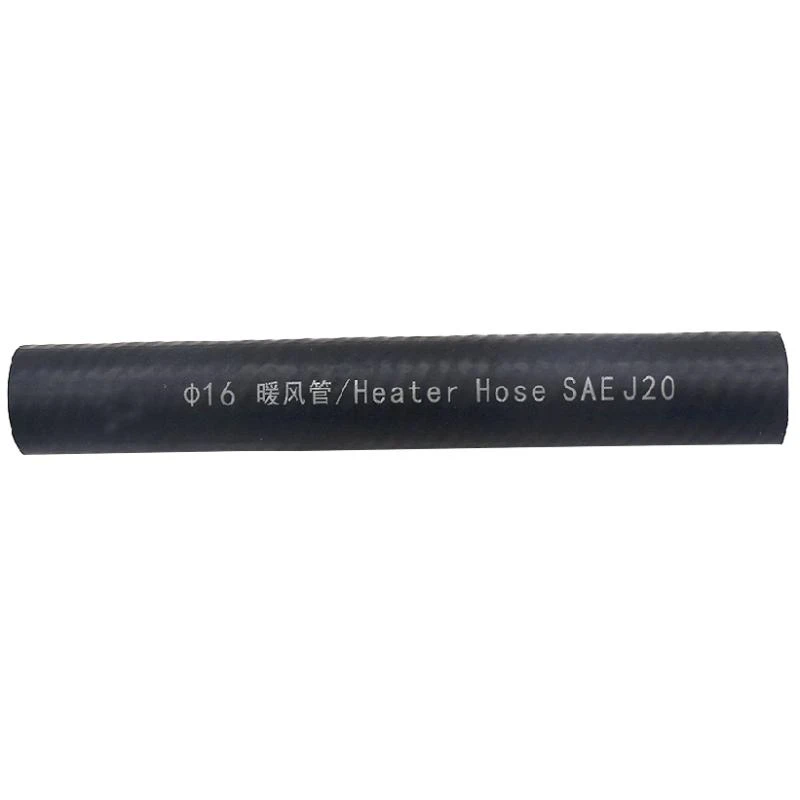AC Compressor Hose Replacement Guide for Efficient Cooling System Performance
ធ្នូ . 25, 2024 01:30 Back to list
AC Compressor Hose Replacement Guide for Efficient Cooling System Performance
The Importance of AC Compressor Hoses in Automotive Cooling Systems
The air conditioning (AC) system in a vehicle is crucial for passenger comfort, especially during hot weather. A key component of this system is the AC compressor hose, which plays a vital role in transporting refrigerant throughout the AC system. Understanding the significance of AC compressor hoses, their functions, and maintenance can help vehicle owners ensure optimal performance and longevity of their air conditioning systems.
Understanding the AC System
To appreciate the role of the AC compressor hose, let’s briefly review how an automotive air conditioning system works. The system primarily consists of the compressor, condenser, evaporator, and expansion valve. The compressor, driven by the engine, compresses the refrigerant and sends it under high pressure to the condenser. Here, the refrigerant releases heat and transforms from a gas to a liquid. The liquid then travels to the expansion valve, where it experiences a pressure drop and transforms back into a cool gas as it enters the evaporator. As the gas circulates through the evaporator, it absorbs heat from the cabin, providing a cool, comfortable environment.
The Role of AC Compressor Hoses
AC compressor hoses are vital for connecting various components of the AC system, allowing refrigerant to flow smoothly between the compressor, condenser, and evaporator. These hoses are designed to withstand high pressure and temperature fluctuations while maintaining their flexibility and integrity. Typically made from materials such as rubber and reinforced with various layers, these hoses must be durable to endure the harsh conditions within the engine bay.
The two primary types of AC compressor hoses include the high-pressure hose and the low-pressure hose. The high-pressure hose carries the refrigerant from the compressor to the condenser, while the low-pressure hose returns the refrigerant from the evaporator back to the compressor. Any failure in these hoses can lead to a refrigerant leak, resulting in decreased cooling efficiency and potential damage to the AC system components.
Signs of AC Hose Issues
Vehicle owners should be aware of the signs that may indicate problems with the AC compressor hoses
. Common symptoms include1. Refrigerant Leaks If you notice a refrigerant leak—often characterized by a green or oily substance around the hoses or connections—it may indicate a hose failure. 2. Poor Cooling Performance If your AC system struggles to cool the cabin effectively, it could be due to a hose obstruction or leak reducing refrigerant flow.
ac compressor hose

3. Hissing or Whistling Sounds Unusual noises coming from the AC system may signal a problem with the hoses or connections.
4. Visual Inspection Regularly inspect the hoses for cracks, bulges, or wear. Any visible damage can compromise their functionality.
Maintenance Tips
To prolong the life of AC compressor hoses and maintain the efficiency of your air conditioning system, consider the following maintenance tips
- Regular Inspections Schedule routine inspections of your vehicle’s AC system, focusing on the hoses and connections for any signs of wear.
- Refrigerant Check Ensure that the refrigerant levels are within the manufacturer-recommended range. Low levels can indicate a leak in the hoses or other components.
- Prompt Repairs If you notice any signs of hose damage or leaks, have them repaired or replaced immediately. Addressing issues early can prevent more extensive damage and costly repairs.
- Use Quality Parts When replacing AC hoses, opt for high-quality, OEM (original equipment manufacturer) parts to ensure a proper fit and reliable performance.
Conclusion
In conclusion, AC compressor hoses are an essential component of a vehicle’s air conditioning system. They facilitate the flow of refrigerant, ensuring effective cooling for passengers. Regular maintenance and prompt attention to any issues can help maintain the efficiency and longevity of your AC system, making your driving experience more comfortable, regardless of the weather outside. Keeping your air conditioning in top shape not only enhances comfort but also contributes to the overall value of your vehicle.
Latest news
-
Durable Automotive Fuel Line: Car, Diesel & E85 Hoses
NewsAug.27,2025
-
Automotive Fuel Line & Hose Solutions | E85 & Diesel Ready
NewsAug.26,2025
-
Reliable Automotive Fuel Line | E85 & Diesel Compatible
NewsAug.25,2025
-
Durable Car Heater Hose | Quality Automotive Preheater Pipes
NewsAug.24,2025
-
Durable Air Brake Hose & Air Lines for Trucks | Safety Ensured
NewsAug.23,2025
-
Air Conditioning Charging Hose: Durable AC Recharge Kits
NewsAug.22,2025
